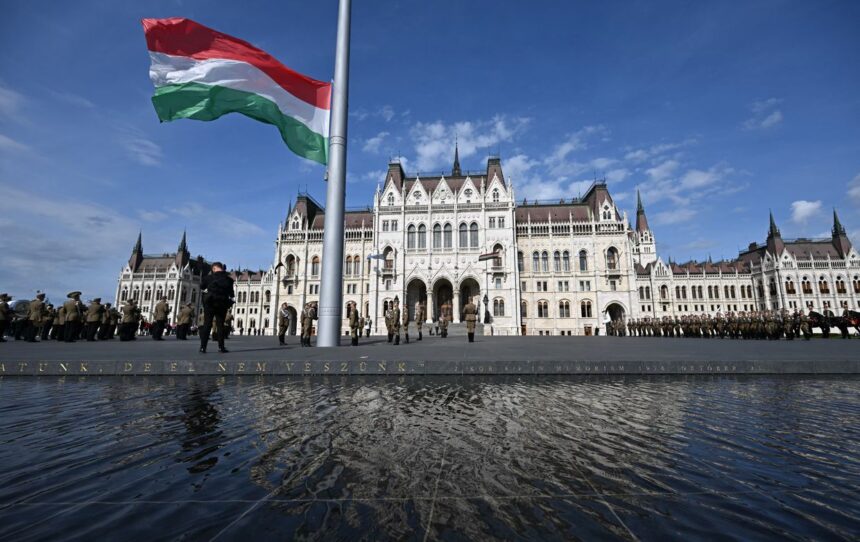Hungarian Prime Minister Viktor Orbán is facing sharp criticism after Ukraine’s security service uncovered an alleged Hungarian espionage network operating within its borders. The diplomatic fallout has escalated into a deeper political crisis, with accusations that Orbán is leveraging the scandal to weaken the rising opposition Tisza party ahead of the 2026 general elections.
Ukrainian Spy Arrests Ignite Diplomatic Tensions
Earlier this month, Ukraine’s SBU arrested two citizens accused of working with Hungarian military intelligence. Citing audio and video evidence, Ukrainian authorities claimed the pair were preparing for future military operations favoring Hungary’s interests.
In a swift response, Hungary expelled two Ukrainian diplomats. Kyiv retaliated with a matching expulsion. Adding fuel to the fire, Hungary arrested a Ukrainian national it claimed was spying for Ukraine. The tit-for-tat measures mark the lowest point in Hungary-Ukraine relations since the start of Russia’s full-scale invasion in 2022.
Orbán’s Political Strategy: Nationalism or Diversion?
Critics argue Orbán is using the spy row to stir nationalist sentiment and distract from his domestic political troubles. With Péter Magyar’s Tisza Party now leading in polls, Orbán’s Fidesz government has ramped up attacks on opposition figures, including labelling them as traitors or spies.
One such figure is Roland Tseber, a Ukrainian-Hungarian councillor who assisted Magyar during a humanitarian visit to Kyiv in 2024. After their visit, Tseber was banned from Hungary and the Schengen Zone with no official explanation. Orbán allies have called him a “terrorist” and “Ukrainian spy,” though Tseber strongly denies any intelligence affiliations.
Peace Rhetoric vs. Military Reality
While Orbán continues to promote himself as a pro-peace leader—once likening his efforts to those of the Pope—a leaked 2023 speech by Hungary’s Defense Minister revealed a plan to build a “combat-ready army” and move into “phase zero of the road to war.”
The revelation undermines Orbán’s longstanding peace narrative and bolsters the argument that his government is quietly militarizing while aligning more closely with Moscow. Many pro-Western military officials, such as former Chief-of-Staff Romulusz Ruszin-Szendi, have been purged and replaced by pro-government loyalists.
Vox 2025 and EU Tensions
Orbán’s government recently distributed the “Vox 2025” survey to every Hungarian household, asking citizens to reject Ukraine’s EU membership. The move is widely seen as part of his strategy to consolidate nationalistic support while torpedoing Kyiv’s aspirations for closer ties with the West.
Orbán’s critics view the entire operation—spanning expulsions, arrests, and political smears—as a calculated diversion ahead of the 2026 elections, designed to rally voters against external threats and diminish the appeal of opposition leaders like Magyar.
Transcarpathian Hungarians: Collateral Damage
The Hungarian minority in Ukraine’s Transcarpathia region has suffered disproportionately. From a pre-war population of 150,000, current estimates suggest fewer than 80,000 remain. Dozens have died fighting for Ukraine, yet face accusations of disloyalty from Budapest—a painful irony not lost on local leaders.
Conclusion: Orbán’s Balancing Act Nears Collapse
With less than a year to go until Hungary’s pivotal elections, Orbán’s calculated mix of anti-EU rhetoric, pro-Russian alignment, and spy accusations may be backfiring. As more leaks and scandals emerge, the Fidesz narrative appears increasingly fragile—and the opposition, emboldened.
Whether the Hungarian public will buy into Orbán’s espionage-driven messaging or rally behind Péter Magyar’s reformist campaign could shape Hungary’s role in Europe for years to come.
Read more: Hungary’s pro-Russia stance in the EU | Ukraine’s EU ambitions face resistance


